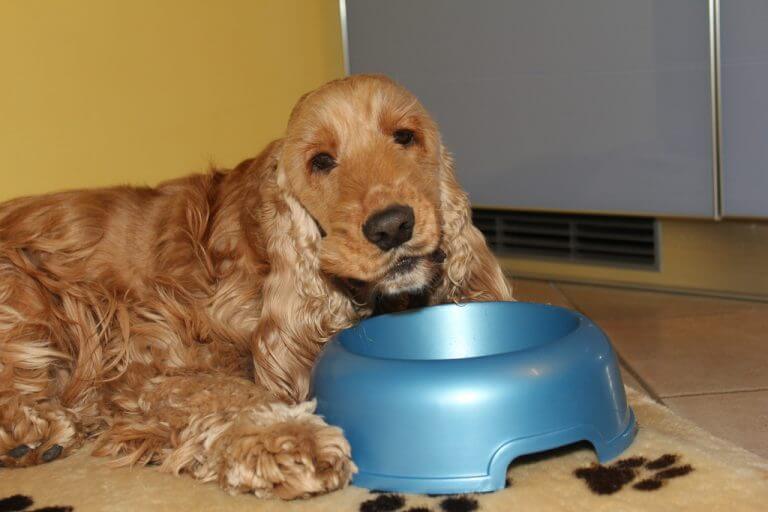Small American Cocker Spaniels can surprise their owner with a great appetite. Dogs who get enough physical activity and spend a lot of time in the fresh air are especially eager to rush to the bowl.
How to Feed an American Cocker Spaniel

What his pet will eat, a person must decide even before the acquisition of a dog. American cockers can live their entire lives eating natural (not from the human table) food or receive a serving of dry food for breakfast, lunch, and dinner.
It’s best to ask your veterinarian about what’s best for your dog. The specialist will help you understand the list of vitamins and nutrients that your pet needs every day and will tell you from which product you can get them.
A small puppy needs to be fed several times a day. For babies under the age of 2 months, 5-6 servings per day will be enough. From the age of 2 to 4 months, the number of meals can be reduced by up to 4 times. By half a year, the number of meals is reduced to 3, by a year to 2 times a day. In the summer, the number of feedings for an adult dog can be reduced to once.
Important! To prevent the dog’s long ears from getting dirty while eating, they can be carefully fastened on the back of the head by the hair with a soft clothespin.
Natural Food – Do’s and Don’ts
For one meal, the puppy should eat a portion of 3-4 tablespoons. Serving an adult dog should not exceed 1.5 cups.
The main foods in the daily diet of a natural food spaniel are:
- fish – sea fish, without bones, fins, and offal;
- meat – fatty beef, lamb or chicken, frozen, without small bones;
- cereals – freshly cooked porridge made from buckwheat, rice, and oatmeal;
- vegetables – fresh and stewed carrots, cabbage, onions, pumpkin, turnips;
- sour milk – cottage cheese, kefir, yogurt;
- vitamin and mineral supplements.
Meat on the menu of an adult American Cocker Spaniel should appear 5 to 7 times. It is best given for breakfast and lunch. It is not recommended to offer fish more than 2 times a week.
Important! Semolina should not be included in the diet due to its high-calorie content.
Some of the non-recommended products include:
- bones that can provoke volvulus, constipation, damage to mucous membranes and tissues, and a violation of the integrity of the tooth enamel;
- white bread, pasta, and pastries, which are distinguished by their calorie content and supersaturation with carbohydrates;
- broccoli, which causes bloating and upset stools.
Sometimes rye croutons, dried fruits, and small portions of fresh seasonal berries and fruits can be included in the diet. Crushed garlic cloves can be used as an antiparasitic therapy.
Dry Food
The veterinarian or breeder from whom the puppy was purchased will help you to decide on the choice of high-quality dry food suitable for the American Cocker. Today there is a wide selection of foods that can meet the specific needs of a dog of any breed, age, and health condition.
American Cocker Spaniels are more suitable for premium food, which is subject to strict certification and testing. Products from such well-known brands as Royal Canin or Hills are rich in vitamins and minerals necessary for a healthy, active life and growth. In most cases, they do not cause allergies and eating disorders, however, there are always exceptions and at the first negative reactions, the feed must be changed. To minimize the risk of their development, feed should be purchased in original packaging, and not by weight.
Important! There should always be a bowl of clean water next to the bowl for the food of a dog. You need to change the water every day. It should be boiled and cooled to room temperature. You cannot replace water with milk.
Owners of “Americans” who eat dry food do not need to additionally buy mineral and vitamin complexes, because everything that is needed is already included in the food.
Do not change the brand of feed often. If it suits the dog, it is impossible to feed it with another kind of “drying”. You should also not mix natural food and feed. If the dog feels comfortable with artificial nutrition, then it has no need for natural products.

